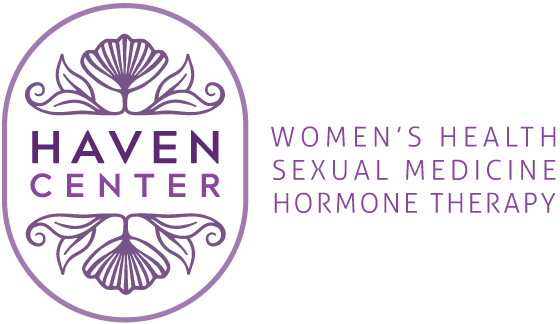Menopause & Perimenopause
Physiologic menopause is defined as the absence of regular periods for more than one year. Surgical menopause occurs when the ovaries are removed prior to the onset of physiologic menopause. Women who have menopausal symptoms, but do not meet diagnostic criteria for menopause are considered perimenopausal.
It is very important to note that menopause is not a disease, though the associated symptoms can substantially impact quality of life. These symptoms commonly include hot flashes, night sweats, mood swings, and vaginal dryness.
There are a variety of treatment options, which are fully customized to the individual needs of each patient, and often take the form of hormonal and non-hormonal medication, counseling, and dietary and lifestyle changes.
Haven Center provides the most innovative and state-of-the-art treatments for a wide variety of women’s health issues, with a special focus on sexual health and hormones. Schedule your appointment today.
“Dr. Babb listened, examined, and explained everything I needed to know about hormonal changes during perimenopause & menopause. He was professional, with a sensical & fact based approach. He was also personable, which made me feel comfortable opening up about subjects that can be difficult. The other two ladies in the office were also welcoming and pleasant. I already recommended Dr. Babb to my cousin, so I’d definitely recommend making an appointment! He has great information regarding hormones on TikTok, so check him out!”
-Sommer M.
MEET DR. BABB
Corey R. Babb, D.O., FACOOG, IF, MSCP
Corey R. Babb, D.O., FACOOG, IF, MSCP, is a Tulsa native who has dedicated his career to advancing awareness, understanding, and treatment of female sexual health. In addition to being a board-certified gynecologist, Dr. Babb holds the prestigious designation of IF – Fellow of the International Society for the Study of Women’s Sexual Health (ISSWSH) – and is also a Menopause Society Certified Practitioner (MSCP). He is a member of the International Society for the Study of Vulvovaginal Disorders (ISSVD) and currently serves on the Board of Directors of ISSWSH. He also contributes his expertise through multiple committees with ISSWSH, the Menopause Society, and ISSVD, reflecting his leadership and influence in advancing the field worldwide. Through education, research, and compassionate care, he helps patients feel heard and validated while navigating some of medicine’s most complex and neglected conditions.

